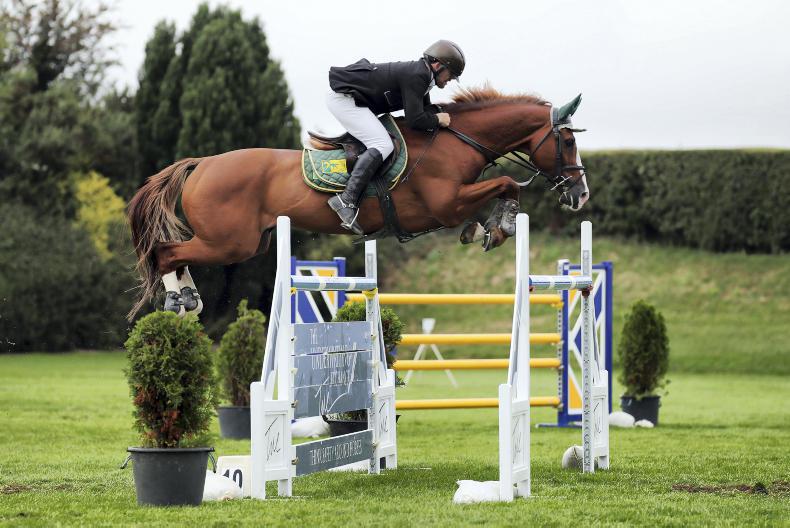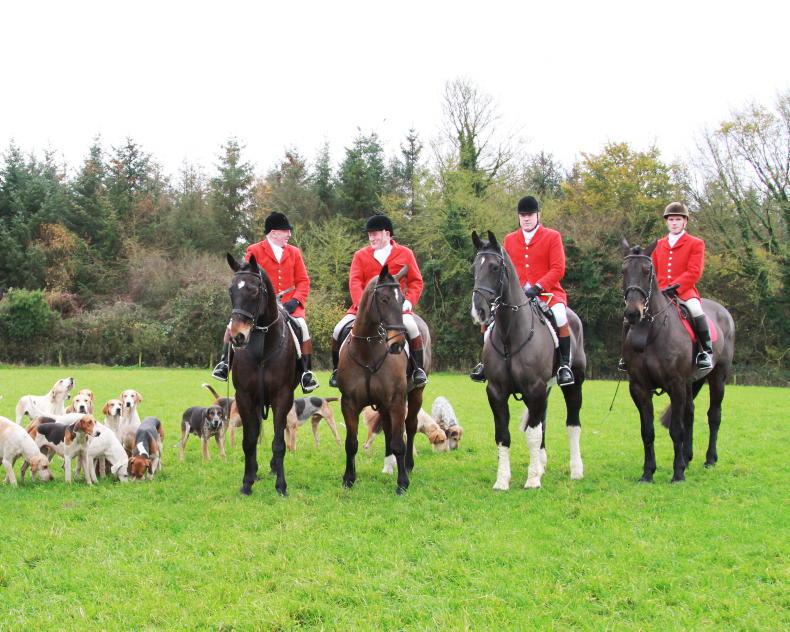THE support of the hunting - and hopefully the racing, point-to-point fratnerity and the bloodstock world - will effectively build up a ‘war chest’ type insurance fund to deal with all kinds of claims that may come down the track.
Last year, things looked very bleak for the continuance of hunting as well as point-to-points due to the notorious compo claims culture in Ireland, leading regular underwriters to pull out of the market. Brexit also compounded the difficulty in finding new underwriters.
However, key players, among them the Master of The Ward Union, Stephen O’Connor of The Underwriting Exchange, and former chairman of the IMFHA, David Lalor, and the IMFHA Committee, undertook trojan work to establish the National Hunt Steeplechase, Point-to-Point and Field Sports Insurance Program (NHSPFS).
The plan is to grow a €1 million starter fund year on year, similar to that of the NARGC. While hunt clubs have their own individual excess for small claims, the new fund will deal with small, medium and large claims while so-called ‘catastrophic cover’ sits above that.
Stephen O’Connor brought a wealth of expertise and contacts in the worldwide insurance industry and indeed every one of his skills and contacts was needed to get it over the line. Between David’s dogged determination and Stephen’s expertise, they made a formidable pair.
There were a couple of red-line issues required and paramount among them was that landowners, be it for point-to-pointing or hunting, should be indemnified against any claim for any accident occurring on their property and secondly, that the policy would prove acceptable to the point-to-point and National Hunt authorities.
The policy came under starters orders on several occasions. With the season ticking away and more and more hunts confined to kennels, a new approach had to found and what emerged is loosely based on the NARGC policy. Thirty years ago, the NARGC set up their own compensation fund which over the years has accumulated significant capital.
The new hunt insurance (NHSPFS) is based on a fund, supported by contributions from its member hunts, with an annual insurance premium to pay large and unexpected large claims, while day-to-day claims will be paid from the fund.
Once the fund develops sufficient capital, the annual payments should reduce fairly dramatically. This is a ‘belt and braces’ type cover with several layers of protection for the landowner, starting with every mounted follower having to sign a heavy-duty waiver in the presence of a solicitor. All mounted followers will have to have a personal third party and accident policy to cover them against accidents to themselves or others. Hunt protocols will also have to be looked at to minimise the risks associated with a day’s hunting.
Ticks all the boxes
While expensive, the new policy ticks all the important boxes and indeed offers a far higher level of indemnity than was previously available. Perhaps its most important advantage is that it will be controlled by hunting and point-to-pointing interests and will not be subject to the whims of some faceless financiers in London or further afield.
As the policy was nearing fruition, two sub committees - one from the foxhounds and one from the harriers - were formed to supervise and scrutinise the emerging policy. John O’Sullivan, huntsman of the Killeady Harriers, proved to be very influential as chairman of the IMHA insurance sub-committee in gaining harrier pack support. With the foxhounds, hunting solicitors Oliver Ryan-Purcell, Matt Nagle, Billy Kelly and Patrick Kennedy, made suggestions that were taken on board by the brokers. The great majority of the foxhound packs have now signed up.
The policy went live last Wednesday and by that afternoon, several packs, most notably the Wards, were back in the hunting field. By last weekend, hunting was almost back to normal for most packs across the country.
Debt of gratitude
Hunting and point-to-pointing owes a debt of gratitude to David Lalor and Stephen O’Connor which can never be re-paid for their persistence hard work and expertise in bringing this policy to fruition. Perhaps now is the time for those from a bloodstock, point-to-point and racing background, who are going to benefit most from the resumption of hunting and pointing, to step forward and contribute towards the fund which will ease the burden on hunts going forward.
Otherwise many of the more vulnerable hunt clubs may succumb to the financial burden imposed by the new policy. This will ensure the continuation of the maximum number of hunt clubs and the point-to-points they run.


 This is a subscriber-only article
This is a subscriber-only article
 It looks like you're browsing in private mode
It looks like you're browsing in private mode










SHARING OPTIONS: